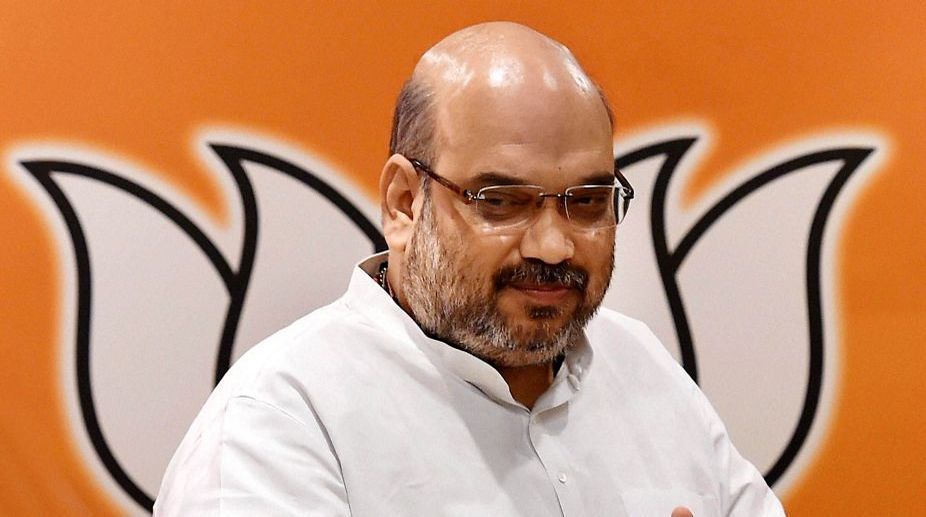BJP resorting to hooliganism fearing defeat in Delhi polls, alleges Kejriwal
The Aam Aadmi Party (AAP) has accused the BJP of unleashing violence across Delhi under police protection to intimidate AAP supporters and disrupt elections.

BJP President Amit Shah (Photo: SNS)
As BJP national president Amit Shah tours north Bengal early next month, the party seeks to put in place a strong support base in the region’s tea belt.
The top BJP leader is scheduled to interact with permanent tea workers, who will inform him of their plight and the present situation in the tea plantations.
Advertisement
According to a BJP leader in the tea belt, Manoj Tigga, who is also an MLA from Madarihat in the Dooars, Mr Shah will interact with select tea workers, who are directly associated with tea gardens, in Jalpaiguri on 8 April.
Advertisement
According to a senior leader of the party, Rathindra Bose, Mr Shah will also meet some select eminent personalities in Siliguri on 8 April. “Leaders in north Bengal have been demanding that Mr Shah visit other districts too, as he is coming ahead of the rural polls.
But the objective of Mr Shah’s visit is to do something better in the tea belt, and it is not about the rural polls,” a senior party leader said.
Notably, the present All India Congress Committee president Rahul Gandhi, also visited Jalpaiguri and interacted with tea workers seven years ago.
After the BJP came to power at the Centre, then union minister of state for commerce and industries, Nirmala Sitharaman, also visited closed and distressed tea gardens in Jalpaiguri and Alipurduar.
Notably, the Left and CPIM- backed trade unions used to have a majority control over the entire tea belt, including the Hills. Later, the Gorkha National Liberation Front (GNLF) and the Communist Party of Revolutionary Marxists (CPRM) took control of the plantations in the Hills.
The GNLF-backed trade union and others lost control in the Hills and some part of the Terai and the Dooars region after the Gorkha Jan Mukti Morcha (GJMM) came up and formed its trade union.
To beat the GJMM-backed trade union on the issue of the Gorkhaland demand, another community-based trade union, the Progressive Tea Workers’ Union (PTWU), was constituted and led by the Akhil Bharatiya Adivasi Vikash Parishad.
After that, as the Trinamul Congress came to power in the state, it also formed its union in the tea belt, but has not been able to have absolute control of the tea belt.
Even the BJP-backed trade union has failed to form a support base, except in some few pocket areas, which are dominated by tribal people.
Recently, the BJP leadership, to beat the PTWU, constituted the BTWU (Bharatiya Tea Workers’ Union) in the Adivasi-dominated tea belt.
Interestingly, Joint Forum, a conglomeration of over 23 trade unions, that included the BTWU and GJMM-backed trade unions, but excludes the Trinamul union, has been organising a movement led by a group of Left-backed trade union leaders and the Congress- backed INTUC.
As the Joint Forum sought Minimum Wages Act (MWA) and traditional ration value, the Trinamul government took several steps in its bid to consolidate its base in the tea belt.
However, as the labour department failed to implement the MWA in the tea sector, department minister Moloy Ghatak decided to provide an interim relief to workers following his party-backed trade union leaders’ demand.
Now, though the increment in the tea workers’ wages was due from 1 April 2017, the labour department asked planters to provide interim relief of Rs 17.50 per day with effect from 1 January 2018.
Recently, the state government also asked planters to pay an interim relief of Rs 9 a day additionally as the cost of the traditional ration.
“Party president Amit Shah will seriously listen to workers so that he can brief Prime Minister Narendra Modi on the situation and plan the betterment of the tea industry as well as the tea workers in north Bengal,” the senior BJP leader said on Thursday.
Advertisement